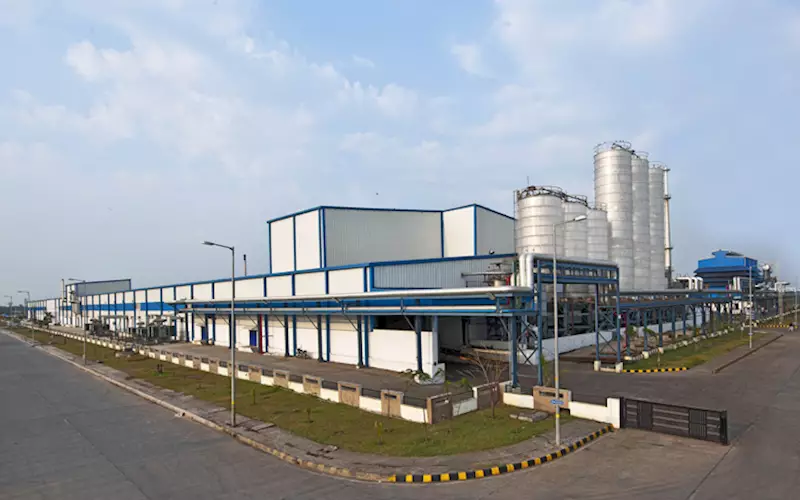Chiripal Poly Films completes 10 years
It started as a single-location, single-product company. Today, it is a multi-locational, multi-product behemoth, which has notched a sale of Rs 2,800 crores and has grown to a family of 800+ people. The Ahmedabad-based company has a capacity for 1,26,000 MT per annum of BOPP, 38,000 MT per annum of BOPET, 2,16,000 MT per annum of PET resin, apart from value-added capabilities for metallising and coating. It also has a footprint in more than 50 countries.
Read more ...
28 Jan 2022 | By Rahul Kumar
“As I look back on this incredible journey, I get a sense of fulfillment,” said Sumant Singhal, CEO, Chiripal Poly Films, “On this day, 10 years back, we started with a dream in our hearts. We were the newest kid on the block in an industry where skeptics had written us off.”
He added, “Today, we stand at the cusp of another decade of growth driven by our soaring ambition and our robust expansion plans. We, at Chiripal Poly Films, have always ensured that our growth and prosperity should positively touch the lives of all our stakeholders. This will be our endeavour in the coming decade as well. We believe this is the only way to make growth meaningful, fulfilling and sustainable.”
Founded in August 2009, Chiripal Poly Films started production operations in January 2012 by installing its first production line of BOPP films with German technology in Ahmedabad. A leading manufacturer of flexible packaging solutions, the company produces biaxially-oriented polypropylene (BOPP) films, biaxially-oriented polyethylene terephthalate (BOPET) films, and PET resin chips.
In the last 10 years, the company has established a good reputation in terms of products, quality and services; not only in the domestic market but internationally as well. The state-of-the-art high-performance lines enhance its capability to fulfill customers’ needs and fosters the development of new customised films for different applications and tailor-made products.
Chiripal Poly Films currently has three BOPP lines, one BOPET line, and one offline coater with a total production capacity of 118,000 MTPA and five metallisers with installed capacity of 52,000 MTPA.
On the rigid packaging segment, the company expanded into backward integration by installing a PET resin manufacturing unit with 2,20,000 MTPA production capacity. The state-of-the-art resin plant is capable of producing bottle, textile, and film grade resins, which ensures timely supply of raw material to the BOPET film plant, and allows serving other plastic segments, such as water and carbonated drinks packaging, and textile processing.
The company has recently started a new plant at Hyderabad to cater to the burgeoning demand in the South Indian markets.
The Hyderabad plant is equipped with a 10.4-m BOPP line with a production capacity of 55,000 MTPA. Additionally, one BOPET line of 8.7-m 45,000 MTPA production capacity and one CPP line of 5-m width and 19,000 MTPA will start soon. The BOPET line is under commissioning and will be operational by May 2022, while the CPP line is expected to be commissioned by the end of the year. The capacity of the Hyderabad plant will reach 119,000 TPA, and will have three metallisers of 35,000 TPA.
“Considering the width of the new BOPP 10.4-m line, our intention is to orient the production to thicker micron films. In fact, the line will be capable of producing from 10 to 70-micron BOPP films. Furthermore, it will have a flame treatment facility which will allow us to guarantee retention of dyne level for a longer period which would help us serve our customers efficiently,” the company told WhatPackaging?.
Chiripal has high-quality standards certifications on quality management systems and food contact packaging. It is certified by AIB, BRC rated AA, ISO 9001, ISO 14001 and OHSAS 18001.
Chiripal Poly Films is part of Chiripal Group, a multi-faceted business conglomerate founded in 1972. Chiripal Group has a current annual turnover of approximately USD one-billion from various businesses, including textiles, petrochemicals, flexible packaging, education, and infrastructure.











 See All
See All